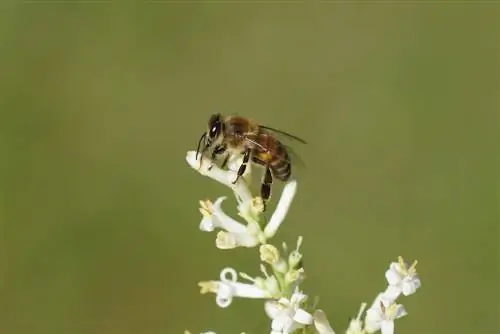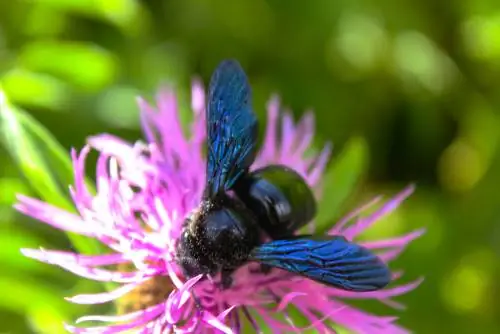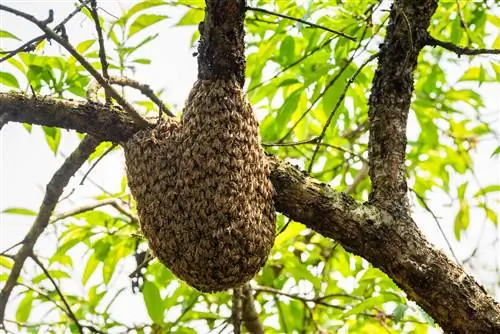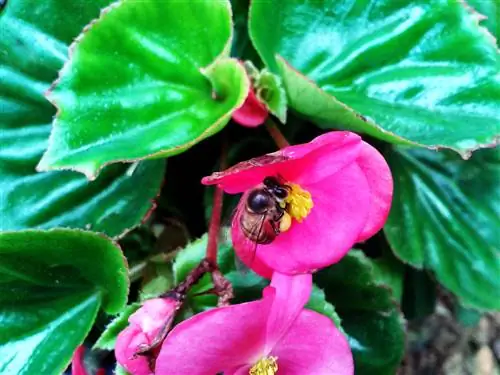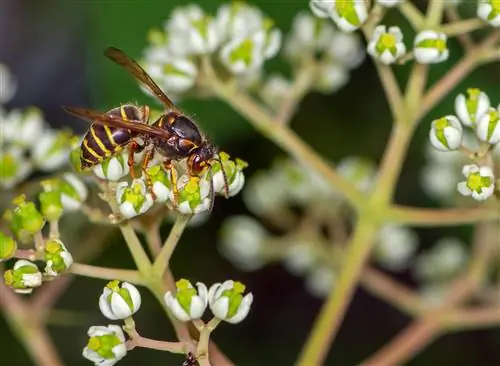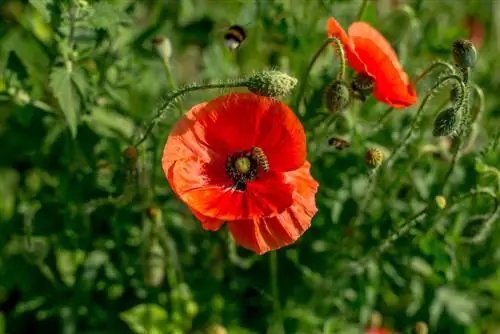- Author admin leonars@hobbygardeners.com.
- Public 2023-12-16 16:46.
- Last modified 2025-01-23 11:22.
Many people plant privet because of its beautiful and opaque foliage. However, the popular hedge plant also serves bees well. Here you can find out how bee-friendly privet is during flowering.
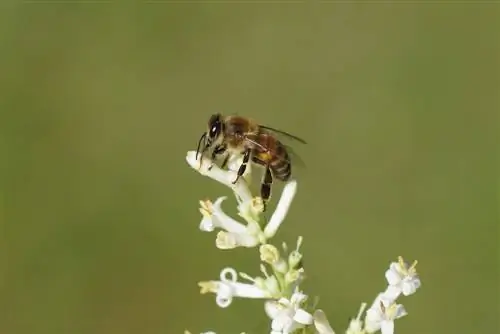
Is privet good for bees?
Privet is bee-friendly and provides bees with nectar and pollen as a food source during its flowering period from June to July. To support bees, you should leave the flowers standing and not over-fertilize. Avoid pruning in summer.
Is privet useful for bees and other insects?
Privet isbee friendly and also helps other beneficial insects. Thanks to its beautiful white flowers, the plant known by the botanical name Ligustrum is a popular pasture for bees. In addition to bees, the popular hedge plant also attracts many butterflies with its inflorescences. In addition, the wood with its dense foliage offers birds a safe nesting place. Privet also provides a natural habitat for caterpillars. When you plant privet, you are making an important contribution to preserving biodiversity in several ways.
What does privet offer to bees?
Privet provides beesNectarandPollen These substances are used by bees as a source of food. The insects also use it to feed their offspring. Compared to other plants, the yield of individual flowers is not particularly large. As a hedge plant, privet has a lot of flowers. In addition, the beautiful and easy-care hedge plant is planted very often. If you count the total number of flowers gathered, privet in Europe offers an important contact point for honey bees and wild bees.
When does privet provide food for bees?
Privet provides bees during itsflowering period This usually takes place in the months of June to July. Consequently, as summer begins, you can provide bees with a good supply by planting privet in your garden. During this time, privet promises benefits for more than just bees. The plant smells pleasant in its respective location and thus creates a pleasant atmosphere in your green paradise.
How can I support bees with privet?
It is important that you leave theflowers and not over-fertilize the privet. If you cut the hedge too late and the flowers fail, the privet will not support bees. Over-fertilization can also lead to problems. Privet doesn't want too much fertilizer. Otherwise, the leaves will turn yellow and the plant's natural growth rhythm will be disrupted.
Tip
Avoid pruning in summer
You should definitely avoid cutting in summer. When the privet has finished flowering and bees have made good use of the hedge, the birds begin to breed. You shouldn't use scissors now. Otherwise you could disturb blackbirds and other birds in the woods.

